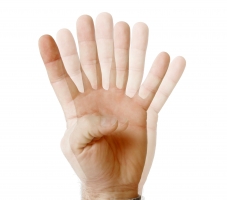If you are struggling with lower back pain that radiates down your leg, you might have hit the internet searching for answers, only to find the terms “sciatica” and “herniated disc” discussed frequently. This is because both conditions can cause debilitating back...
You open your eyes, stretch, and sit up, ready to start the day. But the moment your feet hit the floor, a sharp or aching pain shoots through your heels, arches, or the balls of your feet. Morning should feel refreshing, yet instead, you find yourself hobbling to the...
Are you a fitness enthusiast or a dedicated athlete who has suddenly been sidelined by a nagging, persistent pain in your calf and ankle? That sharp or aching sensation that flares up during or after activity could be the result of Achilles tendonitis. The Achilles...
Signs of a Concussion

What Is A Concussion? A concussion is a medical condition that occurs when the brain becomes injured, often resulting from a blow to the head. The cerebrospinal fluid that surrounds our brain normally acts as a cushion to protect it against injury, but severe trauma can disperse this fluid, causing the brain to make contact with the skull.
Why Do Concussions Occur?
When the head is injured, due to trauma or excessive force, the brain may shake and smack into the skull. At times, a concussion can cause bleeding within or around the brain which can lead to serious or even life-threatening complications. Concussions are often the result of car accidents, fights, falls, sport-related injuries and other scenarios where the skull experiences trauma. The long-term effects of a concussion are often mild in nature but in some cases they can lead to serious or even life threatening conditions.

Signs and Symptoms Of A Concussion
The symptoms commonly associated with concussions can vary drastically from person to person. Since a concussion may not be immediately recognized, it’s important for a person to be evaluated for an extended period of time if a head injury is suspected. Concussion symptoms can last anywhere from a few hours to a few months depending on the severity of the head injury. Since a concussion can cause a variety of physical and mental symptoms it’s important to seek medical attention by visiting an orthopaedic doctor who can determine the extent of your injuries. Mental and Emotional Symptoms When a person suffers from a concussion it’s crucial to pay attention to the way they react to their surroundings and those around them. Mental symptoms commonly include unclear thinking, slowed or slurred speech, trouble concentrating, memory loss and difficulty retaining new information. Physical Symptoms The physical symptoms that can result from a concussion are often more apparent and easier to recognize. These symptoms include headaches, dizziness, blurred vision, vomiting or nausea, sensory sensitivity, extreme fatigue and trouble sleeping.

What To Do If A Concussion Is Suspected
If you believe that you or someone you know may be suffering from a concussion it’s important to seek medical attention immediately. Since symptoms can vary widely from person to person, it’s important to speak with a professional who’s familiar with the condition. By visiting an orthopaedic doctor, such as Premier Orthopaedic & Sports Medicine, a professional evaluation can be performed to diagnose a concussion. Your doctor will perform a series of tests which may include a neurological exam, cognitive testing, CT Scans and observation to determine a diagnosis.
